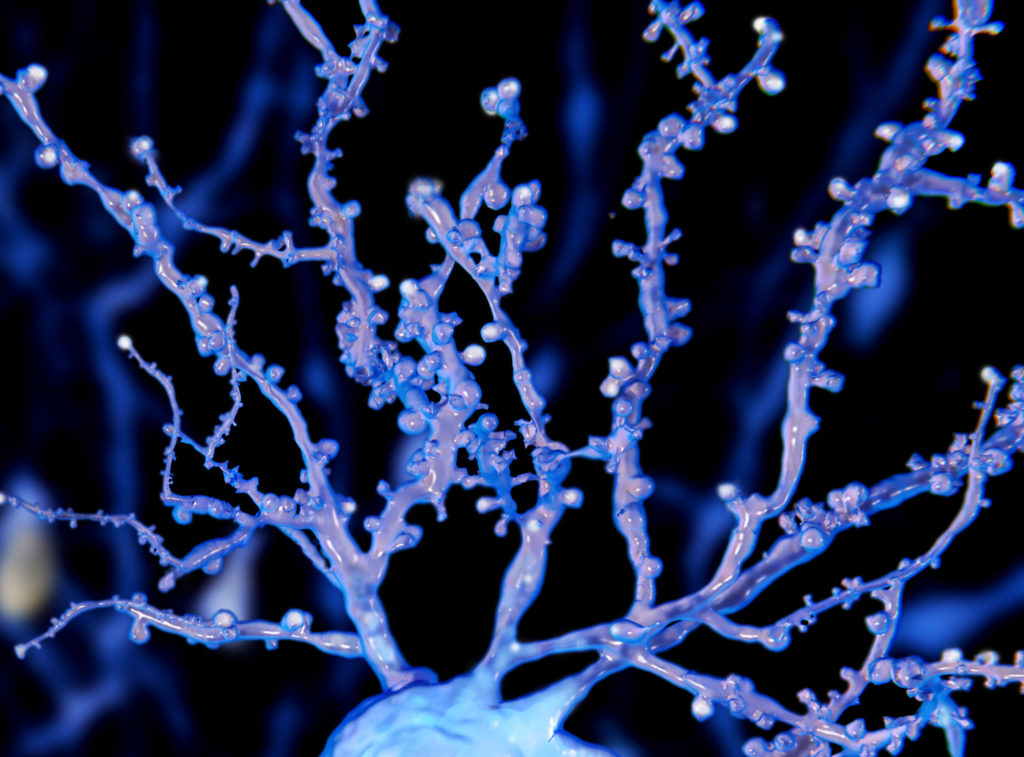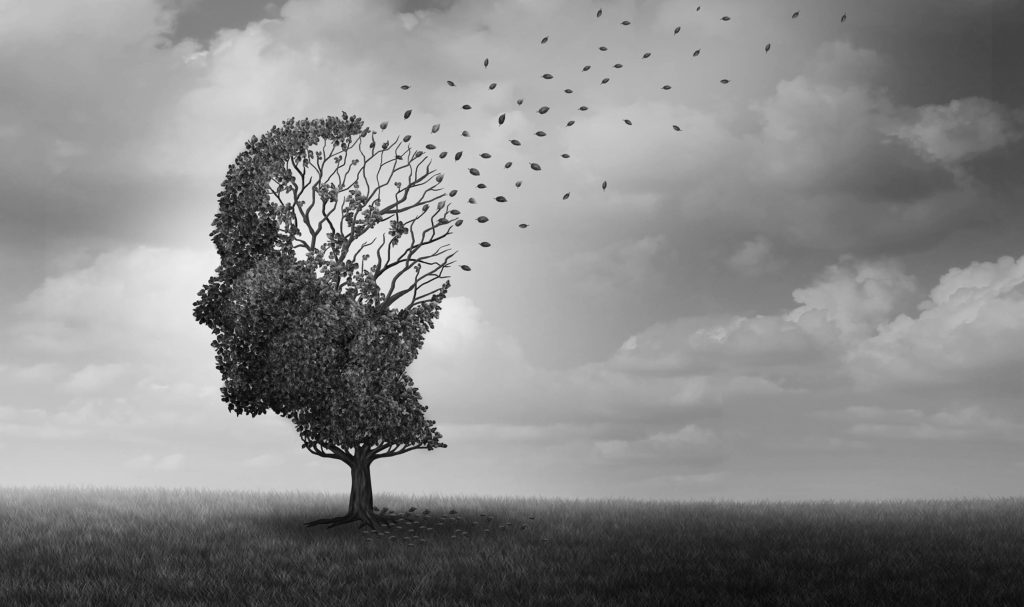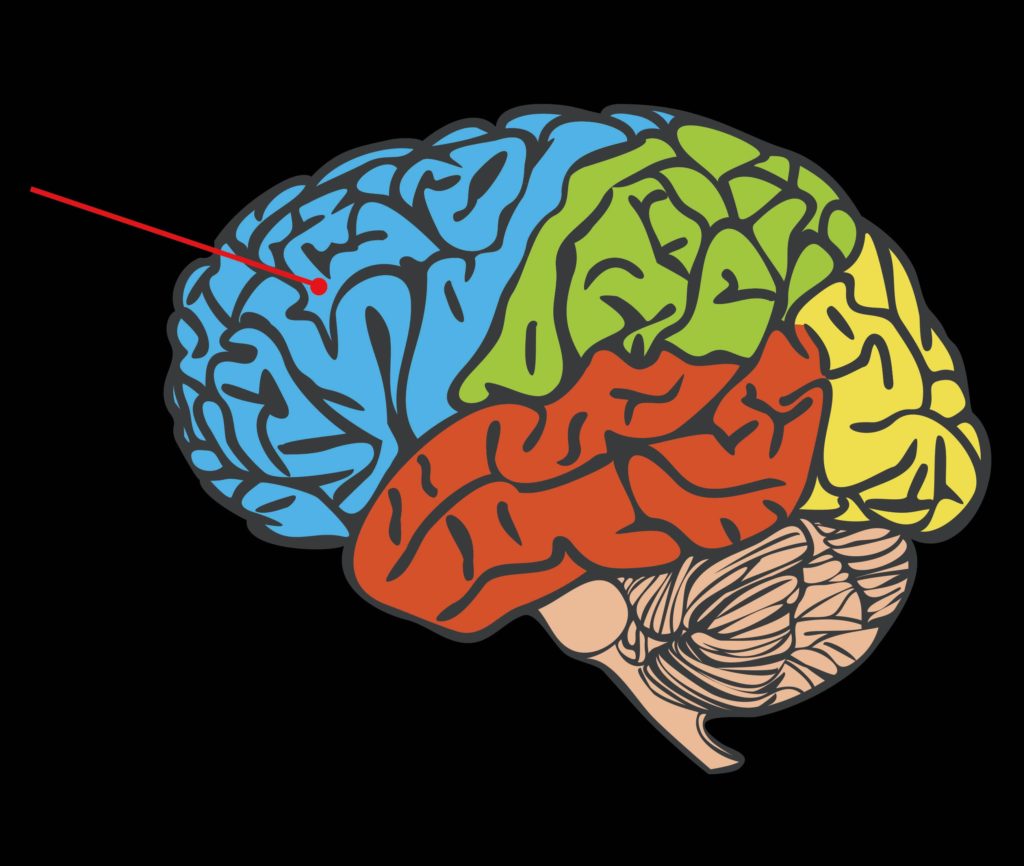The association between cannabis use and poor memory is age-old, and is so prevalent that it has been adopted as part of the standard stereotyping of cannabis users. Studies have indicated a connection—but could cannabis also help to improve memory in certain circumstances, such as in cases of brain injury? How does cannabis encourage episodic memory recall?
Memory remains one of the most mysterious aspects of the human brain to all disciplines concerned with this phenomenon: neuroscience, biology and psychology. The encoding of memory and experience into a format that can be recalled, either on demand or subconsciously, is fundamental to human functioning in the natural world.
From a scientific standpoint, memory can be somewhat explained in terms of brain regions and how neurons transmit and store information in certain areas of the brain. From a psychological standpoint, memory is linked with a myriad of mental illnesses such as PTSD, and at the same time, is also a mechanism that can be used for psychological healing.
Cannabis’ effects on memory are associated with negative effects most commonly, such as short-term memory impairment. However, certain aspects of cannabis’ effects on memory, which may even be positive, are often neglected by modern science.

Cannabinoids, memory and modern science
There have been dozens of studies into the relationship between cannabis use and memory impairment. It is generally accepted that acute cannabis intoxication causes impairment of short-term episodic and working memory, which is thought to persist for several weeks subsequent to consumption (in long-term users).
However, a handful of studies have found little to no significant long term effect. As impairments are thought to be dependent on various factors including the ratio of cannabinoids, duration and frequency of use, it may be that differences in methodology account for these inconsistent results.
There are indications that cannabis-induced impairment to working visuospatial memory disproportionately affects women, with heavier users experiencing greater impairment than light users. This fact should be taken into consideration in future studies, and men and women should be investigated separately to establish the most accurate results.
The fact that several studies have found no statistical significance in the relationship between memory and cannabis use may be because women were underrepresented in these studies. This is a problem that plagues many investigations into use of psychoactive substances, which overall are more widely used by men.
With chronic, heavy cannabis use, a study showed impaired encoding, storage, manipulation and retrieval mechanisms. These impairments are similar to those associated with acute intoxication. They’ve been related to the duration, frequency, dose and age of onset of cannabis use.
Age may play a part in determining the extent of long-term impairment. Some studies have indicated that cannabis-dependent adolescents can have selective short-term memory deficits that continue for at least 6 weeks after the last use of cannabis. These deficits can be auditory, verbal and visual/spatial. They’re hypothesized to occur due to functional changes in the developing brain that may be caused by early cannabis use.
Brain activity on cannabis
Magnetic resonance imaging and similar techniques have revealed that when intoxicated by cannabis, humans utilise different areas of the brain to complete tasks associated with learning, retention of information, and memory.
A study published in 2006 concluded that cannabis users display lower brain activity than non-users in certain regions involved in associative learning, particularly the parahippocampal regions and the right dorsolateral prefrontal cortex, despite performing normally in learning tasks.
Analysis of the parahippocampal regions revealed no structural differences between cannabis users and non-users. Thus, lower brain activity and resultant memory impairment may not signify damage to neural tissues, but may be the result of a separate variable associated with cannabis use, such as changes in cerebral blood flow.

A separate study also indicated significant impairment in learning and memory performance on a task that is known to activate the hippocampal region. Cannabis users performed worse with respect to learning, and with short and long-term memory performance. During learning, cannabis users had higher Blood-oxygen-level-dependent imaging activity in the right parahippocampal gyrus. These results indicate functional deficits and compensatory processes in cannabis users.
It is widely believed that cortex rather than hippocampus is the main locus of information storage, but hippocampus is needed to help place certain kinds of memory into cortex. Although their respective roles are not fully understood, it is thought that the cortices are primarily involved in storage of information, while the hippocampal regions are associated with procedural memory and priming.
CB1-receptor antagonists and memory
Researchers hypothesize that cannabidiol mitigates the memory-impairing effects of THC by binding to the CB1 receptor and rendering it inactive. Ligands which bind to but do not activate receptors are known as antagonists; beyond THC, various other cannabinoids have been identified as CB1-receptor antagonists.
The synthetic CB1-receptor antagonist SR141716, also known as rimonabant, has been found on more than one occasion to counteract memory impairment caused by THC. Specifically, SR141716 antagonizes the inhibition of hippocampal long-term potentiation.
Long term-potentiation is a crucial neuronal process that contributes greatly to the overall process of memory formation. Long-term potentiation with respect to learning and memory mainly occurs in the hippocampal region, and is inhibited by elevated levels of endogenous CB-1 receptor agonist, anandamide. Separate research has confirmed that anandamide itself has a similar memory-impairing effect.
Cannabidiol and memory
Several studies have indicated that THC adversely affects memory while cannabidiol actually mediates this effect. By binding to the CB1 receptors and causing them to be unaffected by the presence of THC molecules, CBD lessens the effect on short-term memory recall.
A study from 2010 investigated and compared the results of memory and learning tests of people using high-CBD varieties versus those using low-CBD varieties. The cannabinoid content of samples collected from study participants (all frequent users) were analysed. THC content of all samples was found to be consistent.
Users consuming low-CBD varieties (containing less than 0.14% CBD) showed significant impairment in memory tasks at the time of intoxication. Those consuming high-CBD varieties (containing more than 0.75% CBD) showed no impairment. This suggests that CBD’s antagonistic effect on the CB1 receptor mitigates the memory-impairing effect of THC.
A separate study using rats showed that high-CBD extracts had no effect on working and short-term memory, even in the presence of high concentrations of THC. However, when additional THC was administered, high-CBD-rich extracts did not reverse subsequent memory impairment. Thus, it appears that impairment of spatial working and short-term memory is dependent on the ratio between CBD and THC.
CBD and perinatal brain injury
CBD has been shown to provide a neuroprotective influence on newborn rats subject to hypoxia-ischemia, a common cause of perinatal brain injury that can severely affect learning and memory consolidation. CBD mitigates inflammation levels and reduces oxidative stress subsequent to brain injury, preventing cell death and reducing the extent of tissue damage compared to controls. This enables developmental processes to continue, and allows the person to achieve greater overall cognitive ability in adulthood.
A separate study demonstrated that young rats subject to memory impairment induced by iron toxicity experienced improvements in memory when treated with CBD upon reaching adulthood. This suggests a possibility that CBD can reverse memory impairment as well as prevent it. If these results can be replicated in humans, it could lead to the development of much-needed additions to the limited range of treatment options currently available for recovery of memory.
Memory improvement in degenerative brain disease
In healthy people, it appears that THC has significant effects on memory, but that CBD helps to mediate this impairment. However, in people suffering from certain degenerative diseases, it appears that both THC and CBD can exert a neuroprotective effect, inhibit ongoing impairment of memory, and potentially even improving it.

The potential for cannabinoid therapies to slow the progression of Alzheimer’s and potentially even assist in repairing damaged brain tissue is well-researched. Cannabinoid therapies can reduce the persistent inflammation of brain tissues that ultimately leads to neuronal death in Alzheimer’s, as well as assisting in the regulation of glutamatergic transmission. This process is crucial to the long-term potentiation of memories. Cannabinoids are also known to reduce the characteristic plaques that form in neural tissue as a result of Alzheimer’s.
It appears that THC and other CB1-receptor agonists are the key to this process, as the synthetic cannabinoid WIN 55,212-2 has also been shown to reduce brain tissue inflammation and improve working memory in older rats. Another similar study indicated that older rats also underwent neurogenesis (growth of new neural cells) in the hippocampus when treated with WIN 55,212-2, as well as showing marked improvements in cognitive abilities.
As well as THC and CBD, there may be other compounds contained within cannabis that can assist in memory improvement in degenerative brain disease. Terpenoids and flavonoids found in various plant species have been shown to improve memory in Alzheimer’s patients. While no specific research into cannabis terpenoids and Alzheimer’s exists, it is possible that they exert an effect, at least in the context of the entourage effect.
Importance of THC in forgetting
While much is made of cannabis’ ability to impair memory, this property could also be useful in medicine. A little-considered potential application for THC in medicine is in the suppression or erasure of negative or traumatic memories, such as in those affected by post-traumatic stress disorder (PTSD).
Acquisition and retention of negative memories is a crucial part of learning to avoid danger by developing behavioural responses. If a negative experience occurs repeatedly, the response is consolidated and becomes instinctive. Without such reinforcement, the response diminishes over time until it is non-existent. However, in people subject to severe, repeated trauma, the response does not diminish even when the original stimulus is no longer present.
As our understanding of the role of the endocannabinoid system (particularly the CB1-receptor) in memory and learning grows, it is becoming clear that it is crucial to the extinction of aversive memories. A study published in 2002 demonstrated that mice deficient in CB1-receptors exhibited reduced ability to extinguish aversive memories when subjected to auditory fear-conditioning tests while showing no impairment in learning or memory acquisition. Activation of the CB1-receptor by an agonist such as anandamide is crucial to the extinction of memories. Thus, THC is likely to be useful in the long-term management of PTSD and related disorders.
Enhancement of episodic memory retrieval
Sebastian Marincolo describes in his essay on marijuana-insights.com that many cannabis users have reported an enhancement of what cognitive scientists have called “episodic memory” or “autobiographical memory”.ction of past events than usual. This includes the resurfacing of repressed memories while high on cannabis or simply recalling childhood memories.
Carl Sagan makes a special reference to cannabis’ effects on episodic memory in his now famous article, Mr X. Specifically, he writes in his article:
“When I’m high I can penetrate into the past, recall childhood memories, friends, relatives, playthings, streets, smells, sounds, and tastes from a vanished era. I can reconstruct the actual occurrences in childhood events only half understood at the time.”
In another personal account story from Lester Grinspoon’s blog, marijuana-uses.com, a 19-year-old computer programmer, Mackenzie Cross, writes in his personal account “What I like about Marijuana”:
“Memories seemed to force themselves upon me, very rapid but very gentle. I started to remember things in my childhood that made me truly happy and joyful. Things I had either forgotten or just simply didn’t give the time of day to. I remembered raising my hands up as a signal for my mother that I wanted to be carried and the utter joy I felt when she would reach down and pull me up to her chest. I realized how much she really did, in fact, love me when I remembered how I longed for her goodnight kisses, of which never ran dry.”
It is not altogether uncommon for cannabis users to report these bouts of episodic memory retrieval. They are often linked with strong emotions, just as Carl Sagan and Mackenzie Cross describe in their personal experience stories. This suggests a strong connection between emotion and episodic memory, and this poses an interesting area of research on the topic of cannabis’ effects on memory.
Episodic memory, introspection, emotion and empathy
These two reports are good examples of how cannabis not only enhances episodic memory retrieval, but also the emotional context of those memories. In fact, it is hypothesized in psychological studies that emotional often allows for greater recall of context, but not necessarily of items. This may serve to explain why cannabis enhances episodic memory but potentially distorts short-term memory. The CB1 receptors are present in high concentrations in brain structures that are critical for emotional processing, like the basolateral amygdala, and the prelimbic division of the medial prefrontal cortex (mPFC).

Sebastian Marincolo explains that enhanced episodic memory during a high could be at least a partial explanation as to why many cannabis users report introspective, as well as empathic, insights into others. Interestingly, this has also piqued the curiosity of some scientific researchers. In this study, the authors found that cannabis users were more sensitive to angry faces than happy faces, suggesting a stronger empathy towards negative emotion.
Psychologically speaking, empathy is seen as a positive trait that promotes prosocial behaviour and moral reasoning. Furthermore, episodic memory and empathy are considered to be cognitive abilities that are intrinsically linked, although very few scientific studies have been performed to confirm the extent of this link.
The function of episodic memory for the purpose of introspection, reflection and empathic behaviour is crucial. All of this considered, it is somewhat a phenomenon that cannabis can induce such powerful bouts of episodic memory retrieval. Plus, this effect of cannabis on human memory can be considered a positive one.
The research on cannabis’ effects on episodic memory is virtually non-existent, but regretfully so. Aside from being a particularly interesting area of research, it may also have important implications for the use of cannabis in psychological or psychiatric practice.
While the old stereotype that cannabis use leads to impaired memory generally appears to hold true, it is clear that the relationship between the endocannabinoid system, learning and memory is highly complex and cannot be broken down so simplistically.
In normal conditions, the actions of THC do impair memory, but these effects are mitigated and potentially cancelled out entirely by the presence of CBD in certain ratios. Furthermore, THC and CBD, and other cannabis compounds may exert neuroprotective effects in degenerative brain disease and injury, and may assist in memory recovery.
On top of this, modern scientific inquiry into the topic has assumed, for the most part, that memory impairment is a negative aspect of cannabis use. However, in cases such as PTSD, memory impairment might actually have a medical application.
Another interesting thing to observe is that anandamide, the body’s endogenous cannabinoid, is also responsible for making a person forget, as well as for elevating mood. This was one of the vital characteristics that made it qualify for the name anandamide, ananda meaning “bliss” in Sanskrit. Michael Pollan, in his book, Botany of Desire: A Plant’s Eye View of The World, talks about forgetting as a prerequisite for human happiness. He says, “Do you really want to remember every face you saw on the subway this morning?”
If anything, our lack of research into cannabis’ effects on episodic memory and the implications of those effects shows our little understanding of a complex topic. What we do know is that cannabis can both make a person forget and make a person remember. The two are inextricably linked to emotion, and both of these effects may have a place in the medical application of cannabis.
- Disclaimer:This article is not a substitute for professional medical advice, diagnosis, or treatment. Always consult with your doctor or other licensed medical professional. Do not delay seeking medical advice or disregard medical advice due to something you have read on this website.












Sebastián Marincolo’s article is awesome. When I explain to people my weed smoking experience I find it difficult to put it into words that will add credence to what I’m sharing. This article really explained it so perfect. Also, the first information I have read that validates my conclusion that anything that brings back your memory should not be illegal, for cry’in out loud. I want to continue smoking as I age. To hell with ‘I don’t remember’. 🙂 When my kids stop remembering me; I will continue to remember my whole life.
LOL
I liked these writings very, very much …they’ve certainly validated my own personal experiences with WEED smoking in AK.
Where, in 1982-1986 , marijuana, possession, growth and use was completely legal for this Repressed Bipolar Disorder patient who first experienced pot use and encountered vivid promotion of long repressed memories and issues from my past.
Tom Ph.D.
I mostly only take edibles. More often than not I have episodic memory, especially if I am by myself for a moment while high. A lot of the times I have repeat memories that come back from previous times that I had gotten high. Last night I had the most intense episode of episodic memory while high. It’s like I could pick an age in my life and retrieve all of the memories that stood out to me. They were flashing behind the lids of my eyes one after another. It almost felt as if I was out of my body and in the body of me as a child, and the personality and feelings I had as a child. It was amazing to go back and be that little person that I was.
This article was helpful, nice to know I’m not alone in this and how common it is. It really has been therapeutic. I hope more research is done on it.
It’s totally true. THC has amazing abilities to relax all parts of you, and thus, your brain becomes a little more likely to wonder down memory lane. There are other things though now that are even better for this…they are known as cognitive enhances, specifically referred to as “Smart drugs” or “nootropics” …this guy he lists a bunch of the nootropics that can enhance memory and thinking, studying and all sorts of things….you can find it at drugs and bad ideas
it even goes over specific examples of what they do….and a whole section about how some of the nootropics can help improve things like gaming reflexes! We live in a truly amazing world where we can now basically “hack our brains” ! : )
“Heavy use” may be code language for exposure to carbon monoxide and other combustion toxins which could be expected to affect memory, but which can be avoided by vaporizing instead of “smoking” the herb. More research needed on alternative delivery systems when used instead of H-ot B-urning O-verdose M-onoxide rolling papers.
THC only makes you forget things which don’t matter anyway.
I have spent most of my adult life enjoying cannabis, a lifestyle choice and welcome companion for my hyperactive physical being. However more recently for the past year or so my dependency on cannabis to alleviate chronic pain and anxiety worries me at times. Although after a hellishly complicated period of pain killers, anti-inflammatory meds and sedatives my decisions to use only cannabis I feel contributes to why I am here to write this. The depression and almost fatal effects of the medication is something I hopefully will always remember.
I am going paralyzed you see slowly, the operation I need to halt the process brings along a whole host of pain demons and neurological problems. The complications,adverse,allergic or side effects from the medication affected my heart preventing me getting the surgery I needed. However during this time my cannabis has remained a close and loving friend, forced into a corner I have had an opportunity to fight my illness and pain holistically using my herbal meds ,diet, accupunture and tui-na massage, meditation and enlightenment. The anxiety or P.T.S is associated with my condition and eptopic heart feel like a fading memory. My surgeon has even taken me off the urgent list for now as although his diagnosis will be in my future for now I,m have the time to come to terms with it rather than feeling like a rabbit blinded in the headlamps.
The awesome thing about this article is I have been trying rehabilitate my short term memory skills which apparently will always be impaired. Its going well,some days are better than others, when I forget ! I decided to write down as many of my memories that I could remember just in case the worst happened after the operation. In doing so I have unlocked the most magical childhood memories filled with a physical sense of the moment way back in my small self. The smells, the faces of my parents, I have written about the empathy I felt looking up into an elephants eyes the smell of fear or frustration and the comfort of being safe in my dads arm confronted with this sad animal.
These clear memories are as it states, have help me work through a host of my own issues presently it is like I have the hand of my child in this journey. I have always had a wonderful relationship with children but now I feel my memories are evolving into fables and stories that will enrich not only my own grown children but their children too. This has been like light switching on for me on for me and now my purpose and personality I can safely say have benefited by using cannabis. Imagine how wonderful this therapy could be so that we could relive our happiest memories to enrich our present, amazing.
Relevant to exclusive/intensive language training programs…After teaching for 12 years in China, I have recently learned of indigenous-peopled Bama, Guangxi Province, famed longevity zone, HEMP seeds/roots are part of the traditional diet.There can be a strategic outpost for income-generating/community-building/establishment of an profit-sharing Co-op/BuckyFuller-style trim-tabbing/JediKnight-Tai Ji training, At an international TESOL conference in May in Taiwan, I’ll introduce the above research, and link it with the field of NeuroCinematics, especially Event Segmentation Theory.